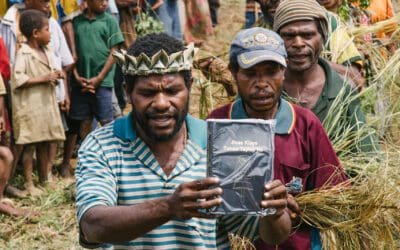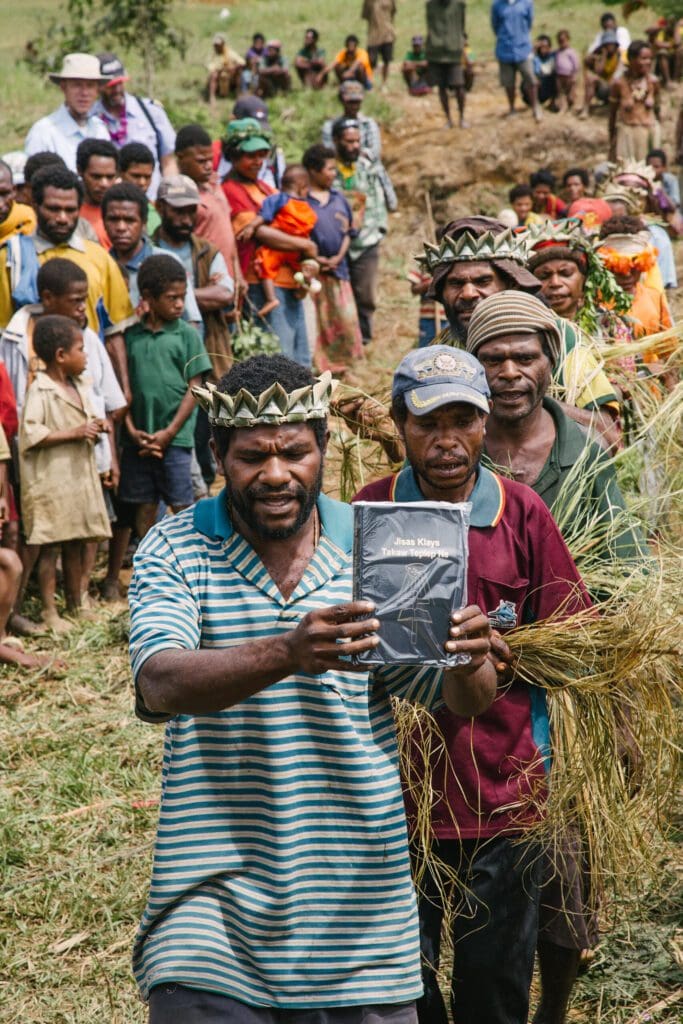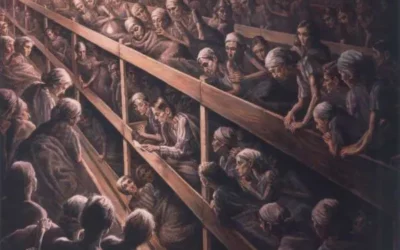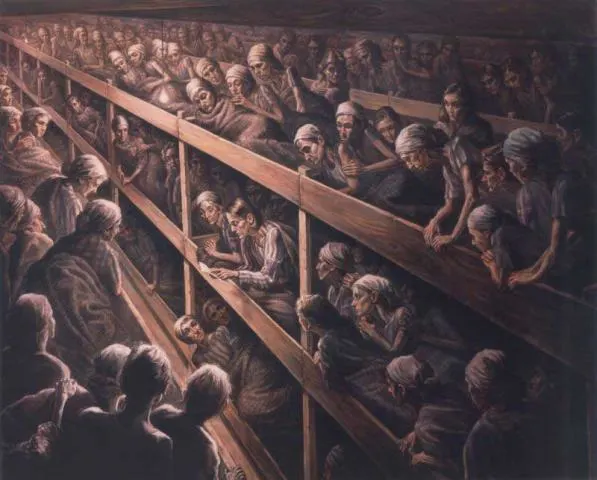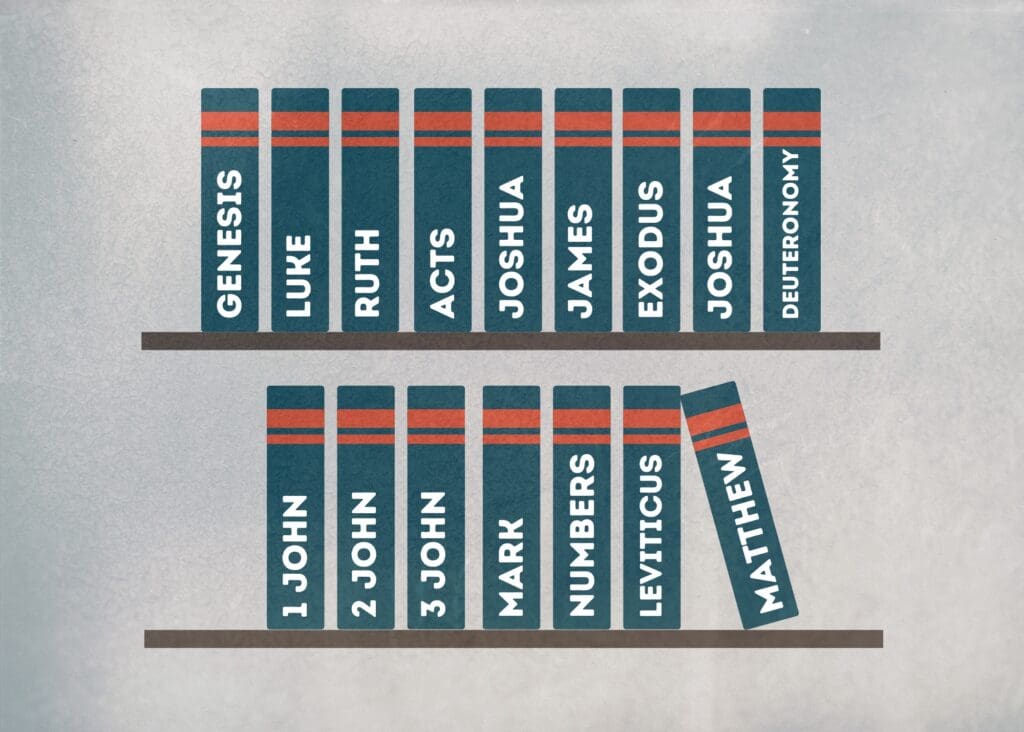Baby Steps
A Bible translator in Papua New Guinea spends his or her early years becoming a child again. Or so it seems. Most of us arrive here having spent the better part of our lives getting an education. When we move to a rural village, though, we essentially become children again. We sit at the edges of gatherings, listening to conversations and quietly mimicking sounds that don’t yet make sense to us. We practice and experiment, stringing sounds and words together. We try to both understand and be understood. Our feeble sounds become scribbles on paper, and those scribbles eventually become meaningful words and concepts. Those concepts ultimately carve the contours of culture into our minds.
Chicken Scratches
Like other researchers, Bible translators keep notebooks. Our language learning notebooks are filled with marks that look like chicken scratches to anyone unfamiliar with the International Phonetic Alphabet. Page after page of exotic sounds are inscribed using this phonetic system. All these “chicken scratches” eventually provide the basis for developing an alphabet.
A page from my early language learning notebook would have looked something like:
ˈʔou.nei – ‘I go’ or ‘you go’
ˈʔou.na – ‘He or she goes’
ˈʔou.ne.ri – ‘They go’
ˈou.nei – ‘I hit’ or ‘you hit’
pu – ‘pig’
ˈa.ɾa – ‘small one’ or ‘offspring’
ˈmamu̚ – ‘dog’
ˈmamu̚ ‘a.ra – puppy
‘no.no – ‘boy’
ˈmo.muˌkou – ‘girl’
ʔɛ – ‘stone’
And so on.
Say What?
Look at the script above. See that symbol that looks like a question mark without a dot at the bottom? It represents a glottal stop. We make the glottal stop by stopping the flow of air in our throats at a point called the glottis (the cleft between the vocal cords) and then releasing the air when we say the next vowel sound.
English speakers use glottal stops all the time. For example, when we say the word “egg” we begin by closing off the flow of air in our throats and then releasing air as we make the short “e” sound. When we say a word that begins with a vowel, we usually start it with a glottal stop. Think of words like icky, etch, also, ordinary, understood. These all begin with a glottal stop rather than the written letter that represents what we understand to be the word’s first sound.
We don’t notice these glottal stops, though, because they don’t change the meaning of our words. We can pronounce those words with or without the glottal stop and the meaning remains the same. We don’t make a conscious decision whether or not to use it; it’s just part of our speech pattern.
In the Somau Garia language, however, the glottal stop does change the meaning of a word. Because I didn’t know this in the early months of language and culture learning, I often sounded like a child, speaking nonsensical gibberish.
Eureka!
I’ll never forget the day I discovered this. My friend Lim and I were sitting in front of his house. Pen in hand, listening intently, I scribbled in my little black and red notebook. One of Lim’s pigs was rooting around nearby, digging for grubs. It was getting a little too close to our toes. Since mine are at risk of looking like grubs in the beady little eyes of Lim’s domesticated razorbacks, he shooed it away by tossing a rock at it.
An incident with a village pig led to a crucial discovery about how the Somau Garia language works.
“/ˈʔɛ pu ˈʔou.nei/,” I thought I heard Lim say. Strange. It sounded like he said, “The stone goes to the pig.” I reasoned that perhaps, in their culture, they see this as the stone going to the pig, as if it had a will of its own. I was clearly barking up the wrong tree.
I mimicked him. “No,” he said, “try again.” I was confused but tried again … and again … and again. What was I doing wrong? The first word was the word for stone. The second word was the word for pig. I thought the last word was the word for “go.”
Could he have said “/ˈʔɛ pu ou.nei/” instead of “/ˈʔɛ pu ˈʔou.nei/”?
I tried saying the phrase without the glottal stop on the last word (a very difficult undertaking for an English-speaking American). Eureka!
If you remove the glottal stop from the word for “go,” you have the word for “hit” or “kill.” Lim was actually saying, “I hit the pig with the stone.” This discovery would have far-reaching implications.
Scribbles Become Letters
It was crucial for the Somau Garia writing system to include a letter representing the glottal stop, because any sound that affects meaning must be written. After much discussion, my Somau Garia teammates and I chose the letter “x” because it wasn’t already being used to represent another sound in their language.
The decision to use “x” also freed us from needing to create a special character that couldn’t be typed without adding a custom keyboard program to the computers of everyone who would ever want to type in Somau Garia. Writing Somau Garia words became much easier once we had an alphabet. Now the phrase about the pig and the rock could be written, “Xe pu oune” instead of “/ˈʔɛ pu ˈou.nei/.” Much simpler!
Why It Matters
It is imperative for the glottal stop to have its place in their alphabet in order to allow the Somau Garia people to understand God’s Word in their language. For example, the difference between ‘up’ (xouro) and ‘down’ (ouro) is the presence or absence of that little glottal stop. The phrase “Most High God” is Xoiteu Xouroni Kutu. Remove the glottal stop from the second word and the translation becomes “God of the Lowest Ground.” In a society that doesn’t often differentiate between the spiritual and physical, this could then describe God as just another bush god, one among many who must be appeased. May it never be!
Bible translation ministry is about helping people gain enduring access to the Word of God in the language that speaks most deeply to them.
Ultimately, Bible translation ministry is about helping people gain enduring access to the Word of God in the language that speaks most deeply to them. It is about setting out the meaning of the Biblical text in a way that is clear, accurate, and natural. In the case of the Somau Garia people, the tiniest detail is required to make that possible. So that oft overlooked little glottal stop gets its own letter in their alphabet — and a pivotal place in the Somau Garia translation of the New Testament.

